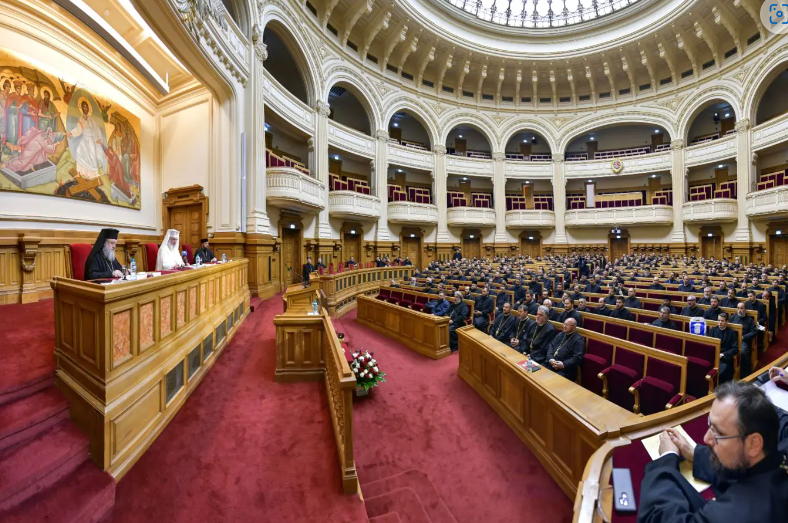Addressing the clergy of the Bucharest Archdiocese earlier this week, Patriarch Daniel offered the example of many countries in Central and Eastern Europe where there is “a reluctance towards palliative care centres because they do not contribute so much to recovery but to the reduction of pain or suffering.” A similar approach can be observed in Romania, the Patriarch noted.
Speaking at the Patriarchal Palace on the second day of the pastoral-missionary Conference of all clergy from the Archdiocese of Bucharest, the Patriarch of Romania explained that this general attitude towards palliative care is based on the estrangement from the Christian view of man as a bearer of God’s image.
The Patriarch of Romania noted that although “the state does not prioritise the care of those who are in a terminal state or who have oncological conditions,” this role was assumed by the Christian denominations.
“You can see here the difference of view on the value of the human person. If the human person was only a producer of material goods with economic significance, that is fine. But when the person is no longer active and no longer produces material values, he is less valuable. And those close to the end of their lives are also very little helped,” the Patriarch said on May 30.
Regardless of the contribution to a person’s material and social life, for Christians, “a person is respected for the dignity of the image of God. So palliative care means the dignity of the human person, regardless of their material effectiveness or efficiency.”
“Therefore, they are cared for with respect, they are treated, and their pains are alleviated, but above all, this spiritual assistance or care is provided through prayer, Holy Unction, spiritual hymns, and prayer books. That is, not only the biological body is taken into account, but also the soul,” the Patriarch of Romania emphasised.
Two visions of the human person are increasingly taking shape, the Patriarch explained: one that reduces the human person to biological existence and everything ends at the grave, and another that sees the human person, created in the image of the ever-living God, as called to eternal life.
Patriarch Daniel also reminded that death is an accident, not a natural state of the body and that we, Christians, look to the future beyond the grave: “The Universal Resurrection is the complete recovery of the human person, soul and body, in a mode of existence without death.”
“The Church sees the person as eternal value, not limited value and not value conditioned by material production, by only physical importance in society. This true perception of the Church is also expressed in the last article of the Creed: I look for the resurrection of the dead and the life of the world to come,” Patriarch Daniel added.
In the age to come “death will no longer be, and the city of New Jerusalem will no longer be lit by the sun or the moon because the Lord will light the city. The presence of Christ, through His grace, will illuminate humanity raised from the dead,” the Patirarch noted.
“Herein lies the great difference between those who believe in God and the resurrection and those who consider life to be only telluric, earthly existence.”
On the second day, the Conference of clerics from the Archdiocese of Bucharest gathered priests and chaplains from Prahova County.
The day began with the Divine Liturgy celebrated by Patriarchal Auxiliary Bishop Varlaam of Ploiești at St. Spyridon Metropolitan Cathedral in Bucharest and continued with the message delivered in plenary session by Patriarch Daniel, who is also the Archbishop of Bucharest.
Three reports on the pastoral care of the elderly and philanthropic projects in this field were presented.
Source: Basilica.ro















